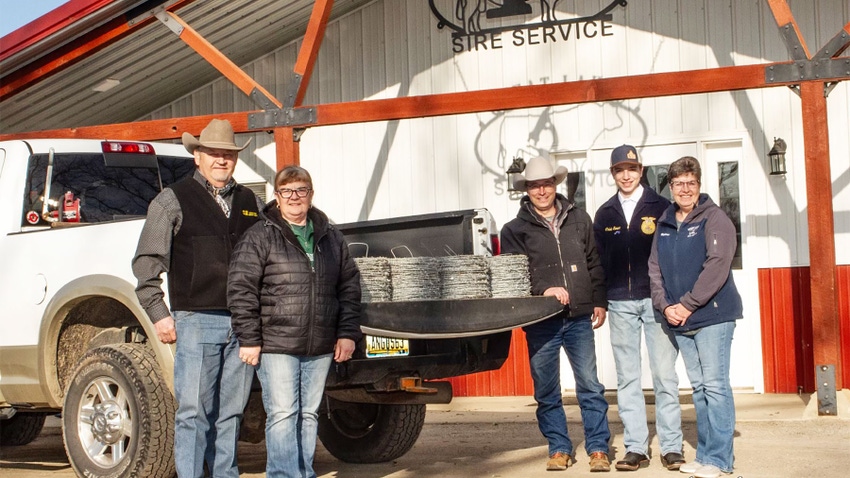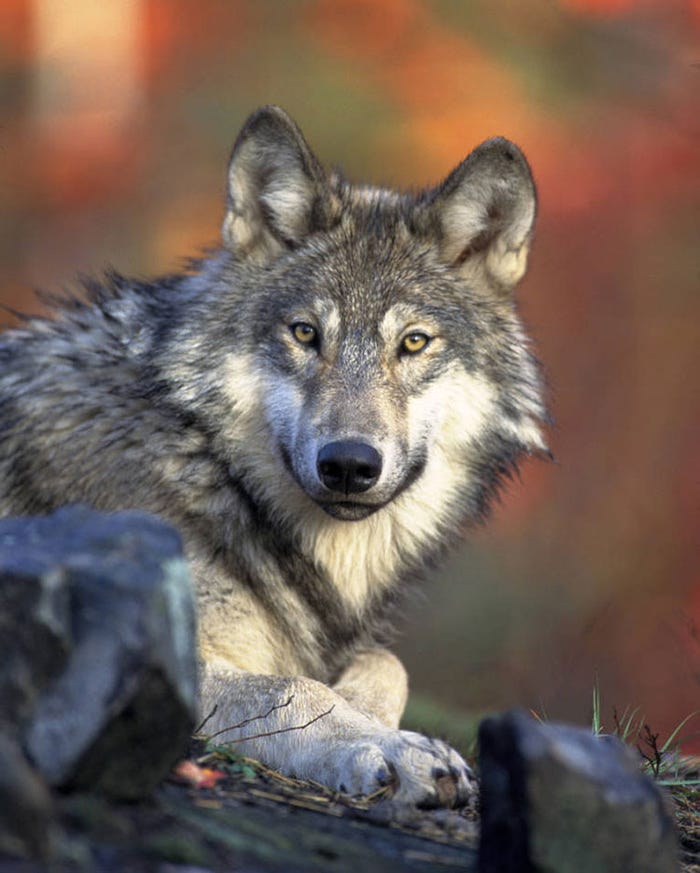April 10, 2024

Supplies are hard to find, and what is available is expensive in the wildfire-stricken areas of Oklahoma and Texas.
To help, the Farm and Ranch Aid from West Michigan headed south March 28 with barbed wire, T-posts, corner posts, milk replacer, calf grain, hay, supplies, medicines, Easter baskets and much more to provide relief.
Supplies and monetary donations reached those in need by Easter, thanks to donations and help from the Michigan Cattlemen’s Association, Great Lakes Sire Service, Bordner Angus Farm, Hopkins FFA & Alumni, and many other Michigan farmers and businesses.
The need is still there. To make a donation or for more information, call 269-806-2727 or email [email protected].
Checks can be made out to Hopkins FFA Alumni with “Texas Relief” in the memo. Mail checks to Hopkins FFA Alumni, 2521 128th Ave., Allegan, MI 49010.
For more updates, follow the Facebook page Farm and Ranch Aid from West Michigan.
Gray wolf harvested in Lower Michigan
A hunter-reported harvest in Michigan’s Calhoun County has proven to be a gray wolf instead of a coyote. Its location is far beyond the state’s known wolf population in the Upper Peninsula.
A Michigan hunter reported the harvest in January of what he believed to a coyote during a legal coyote hunt. However, subsequent genetic tests by the Michigan Department of Natural Resources revealed the animal to be a gray wolf.
That species has not been sighted in that part of Michigan since the likely extirpation of wolves from the state in the early part of the 20th century, according to the DNR.

GRAY WOLF: This photo of a gray wolf is provided only as an example of the species. It is not the wolf found in Calhoun County, as the DNR continues to investigate and search for wolves in the Lower Peninsula. To date, only a few signs of wolves have been found in that part of Michigan since the state’s wolf population became reestablished in the 1980s. (Photo courtesy of U.S. Fish and Wildlife Service, NCTC Image Library)
This wolf was observed when a hunter, accompanied by a guide, said he encountered what was initially believed to be a large coyote. The hunter harvested the animal, which weighed 84 pounds. Eastern coyotes typically weigh between 25 and 40 pounds.
The presence of this wolf in Calhoun County remains a matter of investigation by the DNR. The department does not suspect the animal was part of an established population in the southern Lower Peninsula.
Wolves in Michigan are an endangered species by federal court order. Wolves can be killed only if they are a direct and immediate threat to human life. Livestock owners affected by wolf depredation can receive compensation for their losses. Hunting wolves while they are on the endangered species list is prohibited.
For more information on Michigan’s wolf population, visit michigan.gov/wolves.
Flat River Livestock awarded supreme champion bull
The Michigan Cattlemen’s Association welcomed exhibitors, consignors, partners and friends from Feb. 23-25 at the Michigan Beef Expo and Trade Show, celebrating its 34th anniversary this year.
MCA presented the inaugural Industry Excellence Award to Quentin Harwood, who spoke to attendees about the history of the Michigan Beef Expo and the importance of membership. This event also featured the first year of the Friday Night Lights frozen genetics auction. The auction generated more than $36,700 in sales.
More than 100 cattle were exhibited during the breed show. The supreme champion bull was awarded to Flat River Livestock with a Michigan-bred, born and raised Simmental bull. The supreme champion heifer title was won by 3G Cattle, a Simmental percentage female. The show was judged by PJ Budler, the first judge to judge on six continents.
Saturday’s live lot sale generated more than $370,000 in sales. The average bull sold for $3,471. The average open female sold for $2,922. The average bred heifer sold for $4,322, and the average cow-calf pair sold for $4,516.
Between both sales, there were 375 registered buyers, with almost 100 buyers bidding online and about 50 buyers registered from other states and Canada.
For more information, email [email protected] or call 517-347-8117.
You May Also Like




